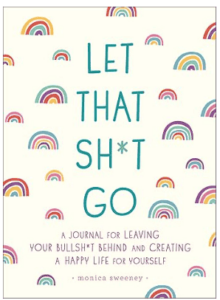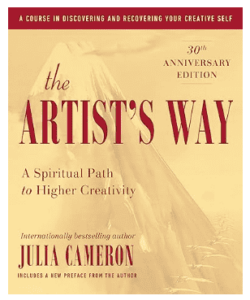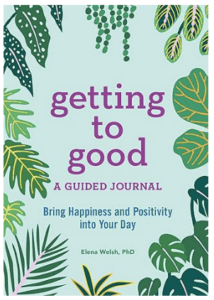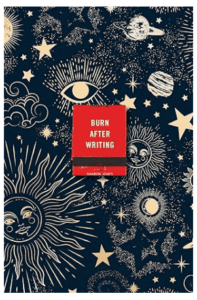These 40 journaling prompts for therapy, crafted by a biopsychologist, are designed to help you understand yourself better and prepare for your next therapy session.
Tailored to connect you with your experiences, guiding you to delve into your thoughts and emotions, they are going to speed along your growth journey.
Can journaling be as effective as therapy? What are some good questions to journal on before my therapy session?
You’re in the right place if you’ve ever pondered these questions. As a holder of a biopsychological master’s degree, I’m excited to deliver all the insights you need to find the clarity and healing you are seeking.
In this blog post, we’ll explore whether journaling can replace therapy, how effective it can be, therapists’ views on it, and unveil the best journaling prompts rooted in vital psychological principles.
This blog post is all about journaling prompts for therapy.
Table of Contents
Toggle1. Can Journaling Be as Effective as Therapy?
Can a humble notebook truly rival the expertise of a seasoned therapist? Well, the short answer is no.
While journaling is not therapy in itself, it undeniably possesses therapeutic qualities that can complement professional treatment.
What I mean by that is, that putting your thoughts and emotions on a page can act as a mirror, reflecting your innermost feelings and guiding you to self-awareness and growth. Journaling serves as a bridge between the conscious and subconscious mind, allowing us to excavate buried emotions, challenge limiting beliefs, and cultivate a positive mindset about ourselves and the world.
Therapists believe journaling can act as a fantastic addition to therapy because writing gives us a way to understand ourselves better and manage our emotions.
WHAT DO THERAPISTS SAY ABOUT JOURNALING
Self-Exploration
Journaling provides a safe outlet to explore our thoughts and emotions objectively.
Emotional Processing
It helps us unpack and constructively process complex emotions.
Enhanced Self-Awareness
Through reflection, journaling fosters a deeper understanding of oneself, aiding personal growth.
Insight and Clarity
Therapists frequently use journaling to uncover hidden patterns and beliefs, offering clarity into one’s inner world.
Goal Setting and Progress Tracking
Journaling assists in setting goals, tracking progress, and maintaining accountability.
Mindfulness and Reflection
Mindful journaling promotes present-moment awareness and reflection, fostering peace and acceptance.
Coping with Stress and Trauma
Writing serves as a coping mechanism for managing stress and trauma, facilitating emotional release and resilience.
Supporting Therapeutic Interventions
Therapists often like to integrate journaling into therapy to deepen the therapeutic process and reinforce key concepts gathered in sessions.
2. Therapeutic Journaling
As we established, putting pen to paper can act as an emotional release, stress settler, and clarify our issues. It’s like your journal is a personal therapist, ready to listen to whatever you need to express.
Therapeutic journaling is all about freely expressing yourself, and letting your thoughts and feelings flow without holding back. It’s about creating a safe space where you can be yourself, think deeply, and feel without judgment. By creating an atmosphere of acceptance, you built a therapeutic environment where you can unwind and embrace your true self without reservations.
WHAT DO YOU WRITE IN A THERAPY JOURNAL?
Thoughts and Feelings
Write down your thoughts and feelings about a specific situation that still lingers, such as relationships, work, or personal challenges.
Experiences
Document significant experiences or events that have impacted you emotionally or psychologically.Reflections on Therapy Sessions
Reflect on your therapy sessions—what you discussed, insights gained, and goals set.
Goals and Progress
Write about your goals for therapy and track your progress over time.
Self-Discovery
Explore aspects of yourself, such as your values, beliefs, strengths, and weaknesses.
Daily Life
Jot down everyday occurrences, observations, or moments of gratitude.
Creative Expression
Use your journal as a creative outlet through drawing, doodling, or collating.
Problem-Solving
Brainstorm solutions to challenges or explore different perspectives on a problem.
Gratitude
Write about things you’re grateful for to cultivate a positive mindset.
Self-Care
Document self-care practices you engage in and how they make you feel.
3. Journal Therapy and Mental Health
While journaling can be therapeutic on its own, there’s also a specialized practice called journal therapy. It’s essential to understand that journal therapy is usually overseen by a therapist who offers guidance and support throughout your journey.
The most common types of therapy that use guided journals are:
- Art Therapy
- Family Therapy
- Acceptance and Commitment Therapy (ACT)
- Cognitive Behavioral Therapy
- Person-Centred Therapy
- Couples Therapy
- Expressive Arts Therapy
- Solution-Focused Therapy
While journaling may not always effectively address certain mental health issues, guided journals can offer valuable support in overcoming challenges.
JOURNAL THERAPY CAN BE BENEFICIAL FOR:
- Anxiety disorders
- Depression
- Post-traumatic stress disorder (PTSD)
- Grief and loss
- Relationship issues
- Low self-esteem
- Obsessive-compulsive disorder (OCD)
- Stress management
- Coping with chronic illness or pain
- Substance abuse and addiction
(If you have serious mental health issues, you should always seek professional help!)
4. Therapeutic Journaling Prompts
Here you are going to find a curated selection of the best journal prompts for therapy, meticulously crafted by a biopsychologist. These prompts delve into the depths of psychology, aiming to spark introspection, emotional processing, and personal growth.
JOURNAL PROMPTS FOR THERAPY
- What are three things you’re proud of accomplishing recently, and what strengths did you demonstrate in achieving them?
- Can you identify any recurring thought patterns that may be influencing your behavior or emotions?
- What emotions arise when you think about your earliest childhood memory, and how do they shape your current beliefs about yourself?
- What does your inner critic say to you most often, and how do you typically respond to these critical thoughts?
- How do you define success, and how does this definition impact your goals and aspirations?
- Can you recall a time when you felt truly confident and self-assured? What factors contributed to this feeling, and how can you cultivate it more often?
- What are your top three values in life, and how do they guide your decision-making process?
- When faced with adversity, what coping strategies do you typically employ to navigate challenges?
- Reflect on a recent conflict or disagreement you had with someone. What were your underlying needs or desires in that situation?
- What fears or anxieties are holding you back from pursuing your dreams, and how can you challenge these limiting beliefs?
- Describe a role model or mentor who inspires you. What qualities do they possess that you admire, and how can you embody these traits in your own life?
- How do you typically respond to failure or setbacks? Are there any lessons you’ve learned from past failures that have helped you grow?
- What activities or hobbies bring you joy and fulfilment, and how can you incorporate more of these into your daily life?
- Reflect on a recent act of kindness you received from someone else. How did it make you feel, and what impact did it have on your relationship with that person?
- What are three things you’re grateful for today, and why are they meaningful to you?
- Can you identify any negative self-talk or limiting beliefs that are holding you back from reaching your full potential?
- Describe a recent moment of flow—a time when you were completely immersed in an activity and lost track of time. What were you doing, and how did it make you feel?
- Reflect on a past mistake or regret. What did you learn from that experience, and how can you apply those lessons to your life moving forward?
- How do you typically handle stress? Are there any healthy coping mechanisms you could incorporate into your daily routine?
- What does self-care look like for you, and how can you prioritize your well-being in your daily life?
- Reflect on a past relationship that ended. What did you learn about yourself and your needs through that experience?
- Describe a recent challenge you faced and overcame. What strengths did you rely on, and how did you persevere?
- What are your long-term goals for your career, relationships, and personal growth? How can you break these goals down into smaller, actionable steps?
- Reflect on a time when you felt deeply connected to someone else. What factors contributed to that sense of connection, and how can you nurture more meaningful relationships in your life?
- Describe a recent decision you made that aligned with your values. How did it feel to honor your values in that situation?
- What does it mean to live authentically, and how can you bring more authenticity into your daily life?
- Reflect on a past trauma or painful experience. What emotions arise when you think about it, and how have you coped with those emotions in the past?
- Describe a recent moment of self-doubt. What triggered it, and how can you challenge those feelings of doubt?
- What are your greatest strengths, and how can you leverage them to overcome challenges in your life?
- Reflect on a time when you felt completely in tune with your intuition. What were you doing, and how did you know it was the right decision?
- Describe a recent boundary you set with someone else. How did it feel to assert your needs, and what was the outcome?
- What are your core beliefs about yourself, others, and the world? Are there any beliefs you’d like to challenge or change?
- Reflect on a past success or achievement. What strengths did you demonstrate in reaching that goal, and how can you apply those strengths to future endeavors?
- Describe a recent act of self-care you engaged in. How did it make you feel, and how can you prioritize self-care more often?
- What does it mean to you to live a balanced life, and how can you create more balance in your daily routine?
- Reflect on a recent moment of vulnerability. What emotions did you experience, and how did you navigate those feelings?
- Describe a recent conflict resolution experience. What strategies did you use to resolve the conflict, and what did you learn from the experience?
- What are your top priorities in life, and how can you align your actions with those priorities?
- Reflect on a time when you felt completely present and engaged in the moment. What were you doing, and how can you cultivate more mindfulness in your daily life?
- Describe a recent act of self-compassion you practised. How did it feel to show yourself kindness and understanding, and how can you extend that compassion to others?
Happy journaling!
5. The Best Therapeutic Journals
If you’re seeking a guiding hand to help with your therapeutic journey I recommend exploring guided journals.
Here, I’ve curated a guide to the best-guided journals available on Amazon:
Let That Sh*t Go: A Journal for Leaving Your Bullsh*t Behind
Monica Sweeney’s journal is a fun, witty take on self-reflection. Packed with clever prompts and exercises, it helps you ditch negativity, embrace self-kindness, and focus on what truly matters. Perfect for anyone ready to let go and find some inner peace!
The Artist’s Way: Workbook
The spiral-bound Artist’s Way Workbook is a hands-on guide to Julia Cameron’s creative recovery process. Filled with exercises, prompts, and activities, it helps readers break through creative blocks and build a rewarding artistic practice. Perfect for anyone looking to reignite their creativity and live more inspired!It offers empowering prompts and practices for healing after heartbreak. It’s your safe space for reflection, growth, and self-discovery.
Getting to Good: A Guided Journal
Getting to Good is a powerful journal that helps you tackle life’s challenges and build resilience. With guided prompts and exercises, it encourages you to process emotions, shift negative thoughts, and find peace. A thoughtful tool for personal growth and healing!
Burn After WritingThe Breakup Journal – 30 Days To Get Over Them
This bold pink journal dares you to dig deep and get real. Its interactive prompts push you to explore your thoughts and secrets honestly, with the option to “burn” or discard it for a fresh start. A unique tool for self-discovery, growth, and letting go.











